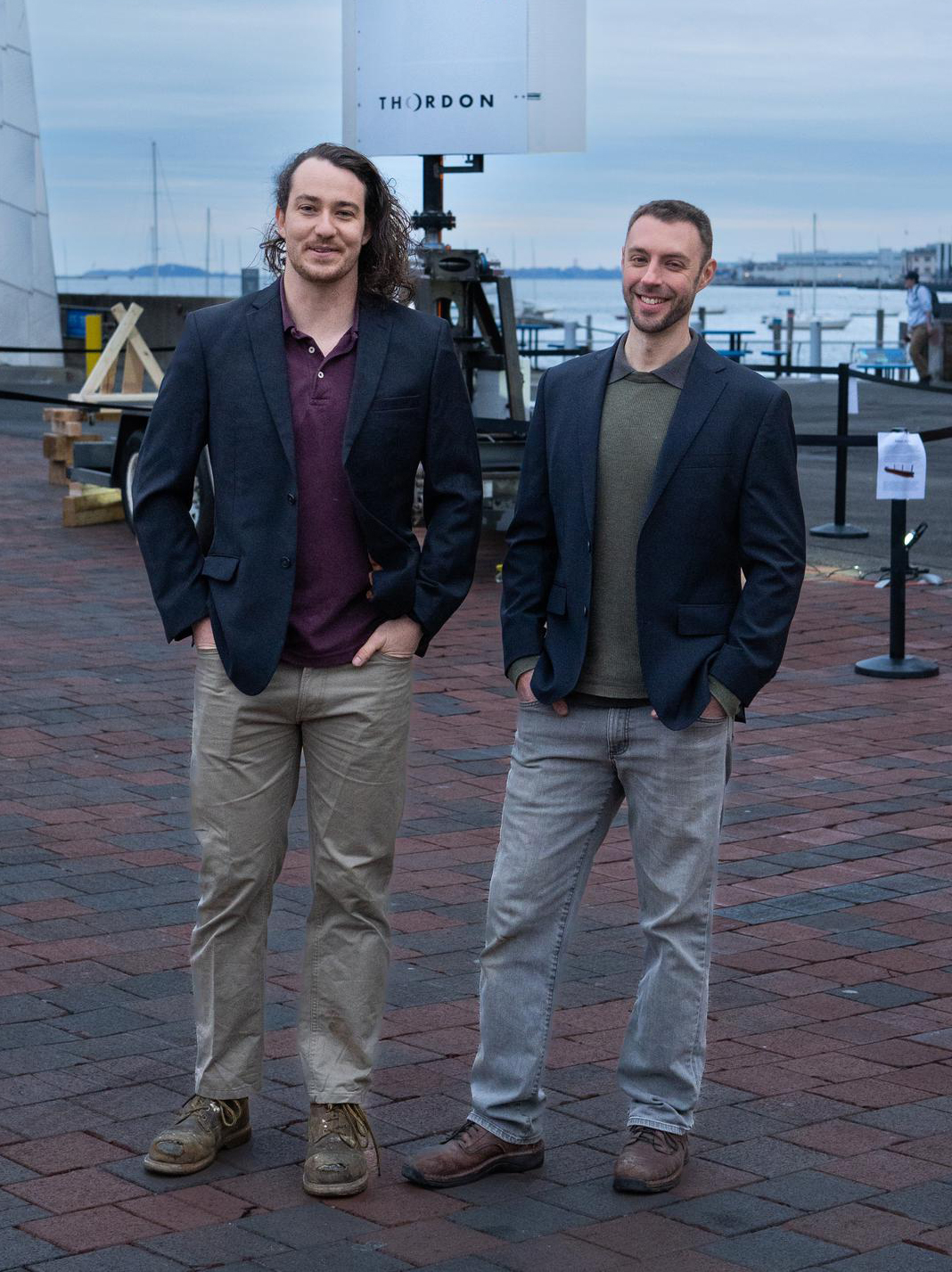Feature
Novel wind propulsion system examined: Aloft Systems
Jasleen Mann talks to Miles Keeney-Ritchie, CEO of Aloft Systems, about the company’s unique sail system.

Credit:
Boston-based Aloft Systems has designed its containerised wind propulsion system to reduce fuel consumption and fossil fuel emissions for shipping, with the system described as ‘wind power-in-a-box’ technology.
Our sails are designed to be extremely rugged and reliable, yet achieve the same performance as much more complex systems.
The sail system was developed by the company’s co-founders, Miles Keeney-Ritchie and Satchel Douglas.
It is an aluminium and composite airfoil within a 16m shipping container and deploys automatically according to sufficient wind, which propels the vessel. When fully extended, the sails tower 18.3m (60ft) above deck.
“Operating at sea is an incredibly abusive environment, and our sails are designed to be extremely rugged and reliable, yet achieve the same performance as much more complex systems," says Aloft Systems CEO Miles Keeney-Ritchie.
Modular, autonomous, and high thrust
“Our camber-morphing technology allows us to deform the wing element creating an asymmetrical airfoil. This significantly increases thrust from the sail and can be adjusted to optimise for a large range of wind conditions," explains Keeney-Ritchie
“Double-batten racing sails create a similar effect but cannot withstand the operating conditions of commercial vessels. We also package the sails in a containerized skid allowing for easy transportation and installation.”
The technology is a modular, autonomous, high-thrust propulsion system that can be lifted onto the deck of any vessel. There is no need for structural modifications, pipework, wiring, or drydocking.
Our containerised units allow the vessel owner or charterer to optimise wind propulsion across their fleet.
The sails will help smaller vessels like platform supply vessels or short-sea barges reduce fuel consumption without needing any intervention from the crew on the ship.
“If conditions deteriorate, the system will automatically stow the sails. While deployed, the system automatically adjusts the sails to maximise thrust for the vessel. Our containerised units allow the vessel owner or charterer to optimise wind propulsion across their fleet," says Keeney-Ritchie.
“Since installing our sails simply consists of lifting the containerised unit onto the deck and lashing it down, our customers can vary the number of units on a given voyage allowing them to move the units with seasonal wind patterns or accommodate various cargo configurations.”

Aloft Systems’ Head of Engineering Satchel Douglas (L) and CEO Miles Keeney-Ritchie (R). Credit: Aloft Systems.
Environmental impact
Two sail units, each with a pair of 15m (49.2ft) long, 3m (9.8ft) wide folding sails are expected to reduce fuel consumption and emissions by at least 6%.
“Since our sails are essentially a supplementary engine, the environmental impact is straightforward: when our sails push the vessel forward, the engine burns less fuel," explains Keeney-Ritchie.
“Reducing fuel burned means less CO2 and particulate emissions are generated. For every 1 unit of energy we extract from the wind, we avoid burning 1.7 units of energy in fuel.”
For every 1 unit of energy we extract from the wind, we avoid burning 1.7 units of energy in fuel.
Wind propulsion technology is advancing but it is important that an easily installed system is on the market for existing ships in order to meet emissions legislation.
“The maritime industry suffers from a tragedy of the commons. Every stakeholder agrees that the industry needs to reduce emissions however fuel costs are often passed along from owner to charterer to shipper in a way that reduces everyone’s incentive to save fuel (and therefore reduce emissions)," notes Keeney-Ritchie.
“Emissions legislation with significant and enforced consequences would incentivize all parties to reduce emissions and explore technologies like wind propulsion.”
The next steps for Aloft Systems
Thordon Bearings will supply its grease-free, self-lubricating ThorPlas-Blue bearing material to the system.
Aloft Systems plans to partner with vessel owners or operators to incorporate operational expertise.
Four ThorPlas-Blue bearings were installed on a ¼ scale prototype to allow the sails to fold, rotate 360 degrees and pivot. Thordon will supply the material to full-scale units once a partnership for trials has been established.
Aloft Systems are running tests with the ¼ scale prototype. It is expected that testing will take place this Autumn, followed by a full-size pilot unit trial at the end of 2024.
The company already has partners for the technical development of the sails but plans to partner with vessel owners or operators to incorporate operational expertise. This will increase the likelihood of the sails meeting the demands of commercial shipping.